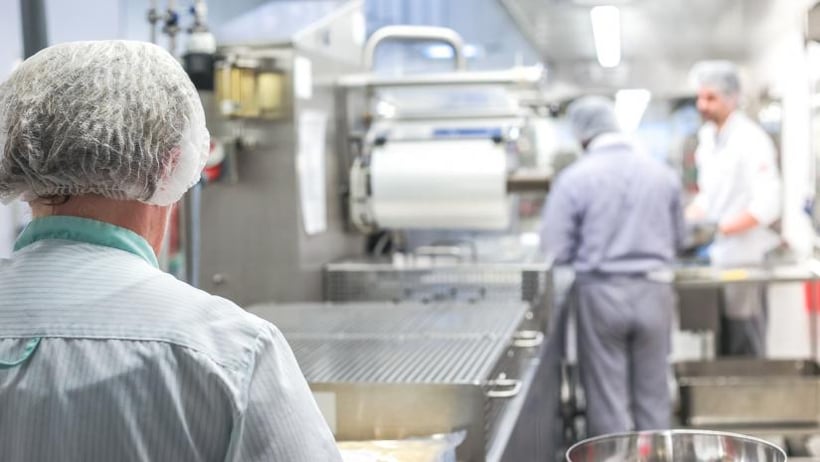
Food Processing Skills Canada has announced in a media release that there will be changes and important enhancements to funding for the BC Post-Farm Food Safety Program and BC On-Farm Food Safety Program. These changes will allow for B.C. businesses within these programs, including processors and farmers, to record personal protective equipment (PPE) as an eligible expense. According to the media release, “This funding will provide a one-time payment, of up to $7,500 for On-Farm participants, or up to $15,000 for Post-Farm participants, to better support the increased need for safety precautions in the agri-food sector resulting from COVID-19.” Along with personal protective equipment, businesses can also access funding for the purchase of other safety supplies that will be used to maintain a safe work environment and reduce the risks of COVID-19.
This announcement comes as the COVID-19 pandemic continues to put the safety of food workers at risk, particularly those in essential services like food production. Food production companies and farmers continue to work to provide food for Canadians while attempting to maintain physical distancing protocols and keep all staff safe from contracting or spreading COVID-19. These are significant challenges, ones that are not overcome without the use of personal protective equipment such as gloves and masks. Requirements for PPE are growing throughout Canada, and food producers are needing to purchase PPE in order to maintain and follow safety protocols. The purchase of PPEs for all staff is costly, and this cost is creating another financial hurdle for food producers that are already struggling due to the pandemic’s impact on the food industry.
The risks of COVID-19 in food production
As COVID-19 continues to be a threat to the Canadian population, essential services in the food industry must continue to follow safety protocols in order to prevent the spread of the coronavirus. Food processors, manufacturers and farmers face unique challenges as they continue to operate during the pandemic. These businesses often have food workers conducting their work in tight quarters, which makes enforcing physical distancing measures difficult if not impossible. Solutions that work in food retail, such as plastic barriers and marks on the floor, are just not doable in most food production businesses. This is especially true when it comes to farming, which requires large amounts of workers labouring next to each other in the fields. As a result, personal protective equipment is one of the main ways that food producers can follow COVID-19 protocols while still producing efficiently.
PPE is essential during the pandemic
Personal protective equipment, particularly masks and gloves, are essential to the protection of food workers during the pandemic. If physical distancing cannot be enforced, PPE does a good job of reducing the risk of contracting COVID-19 from another worker in the premises.
One of the main ways that COVID-19 is spread is through contact with droplets from an infected person’s cough or sneeze. Face masks prevent the spread of droplets into the air and onto surfaces; they also help to protect the wearer from inhaling infected droplets in the air. Masks are also efficient at stopping food workers from touching their faces, which is another way that a person can become infected with COVID-19. If a food worker touches a surface contaminated with COVID-19 and then touches their mouth or nose, they can become infected with the coronavirus.
Disposable gloves are another way that food workers can be protected from the risks of COVID-19 transmission. Gloves prevent a food worker’s hands from coming into direct contact with surfaces, however, they must be used properly. Food workers need to be trained on how to use disposable gloves, including the proper way to put them on, when to change them and how to dispose of them. It is vital to remember that disposable gloves must not be worn for extended periods of time; in fact, they should be changed under the same circumstances that you would wash your hands.
Overall, PPE is vital for the protection of food workers during the crisis, but simply providing them is not enough. Food workers must be trained on all the forms of PPE that are being used throughout the food production establishment. Doing so means that food workers will not unknowingly spread COVID-19 due to improper use of their PPE. The protection of essential food workers during this time is of the utmost importance and must be the primary focus of all producers in the food industry. You can learn more about PPE for Food Workers in this CIFS resource.





